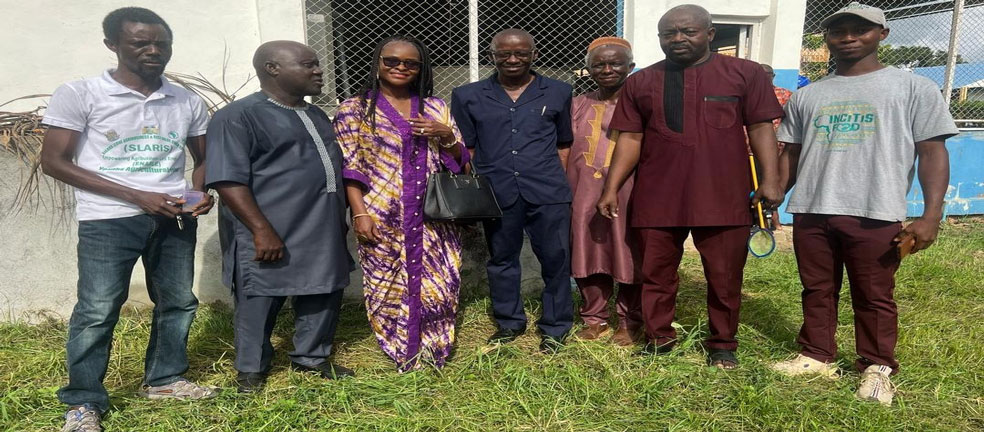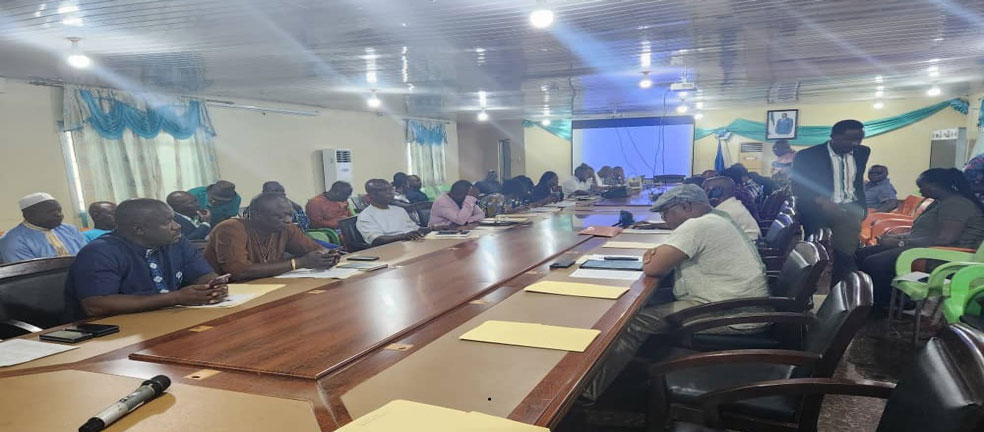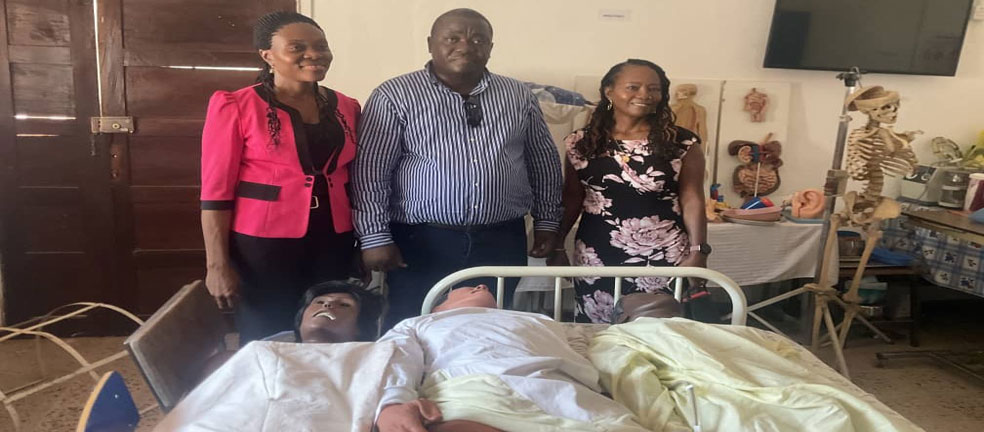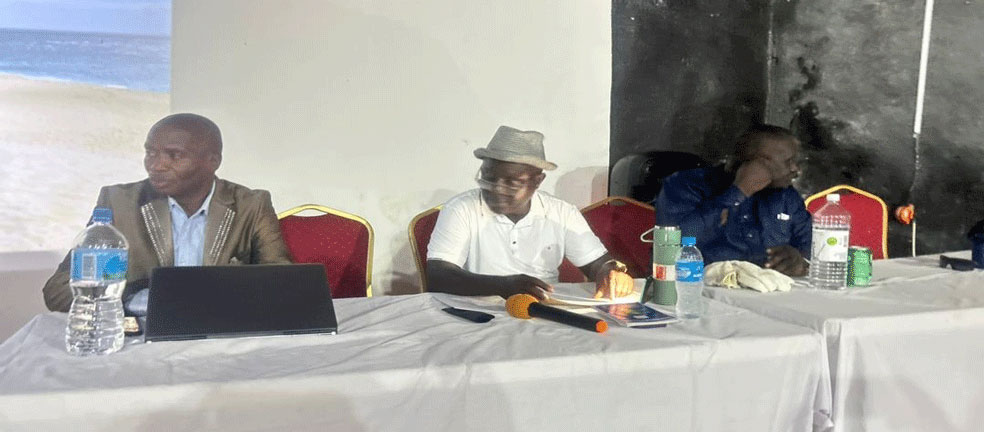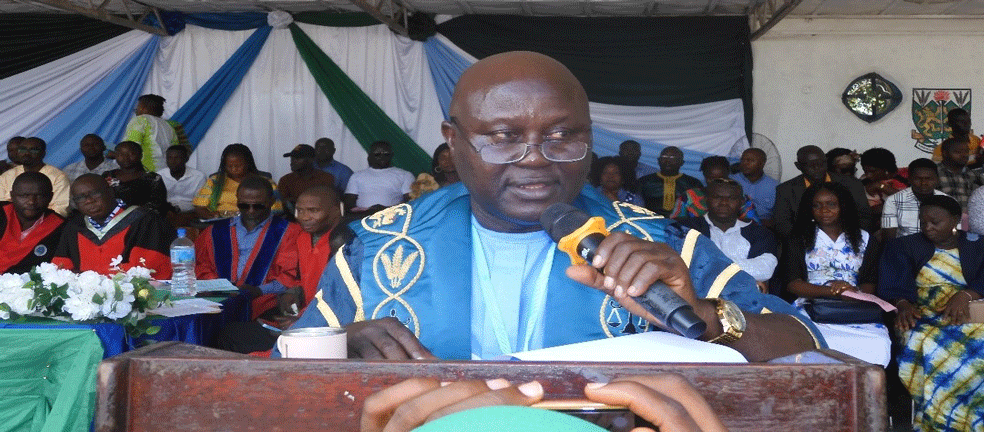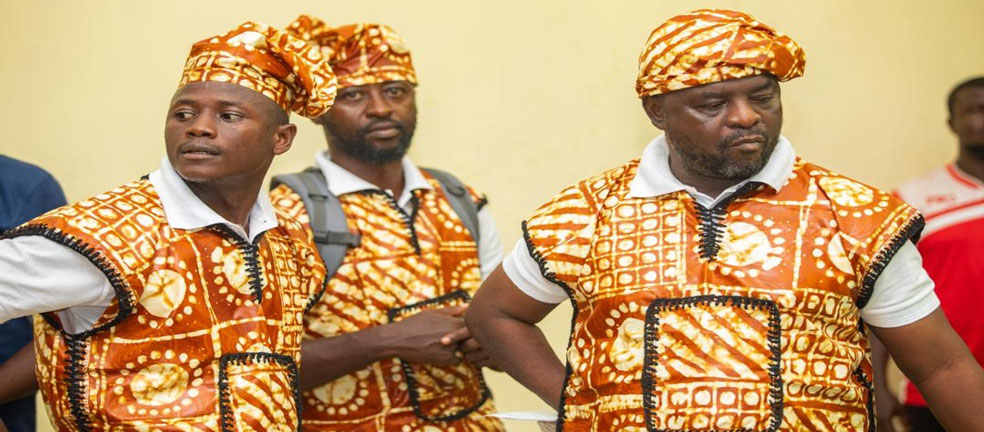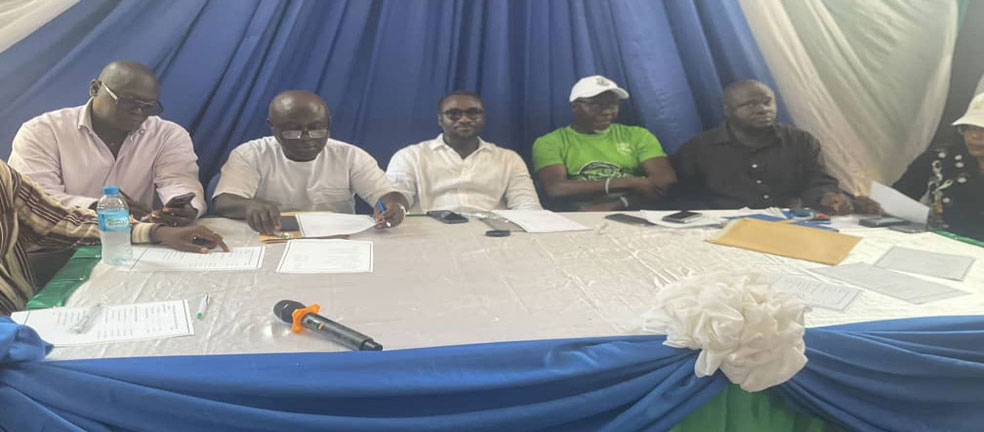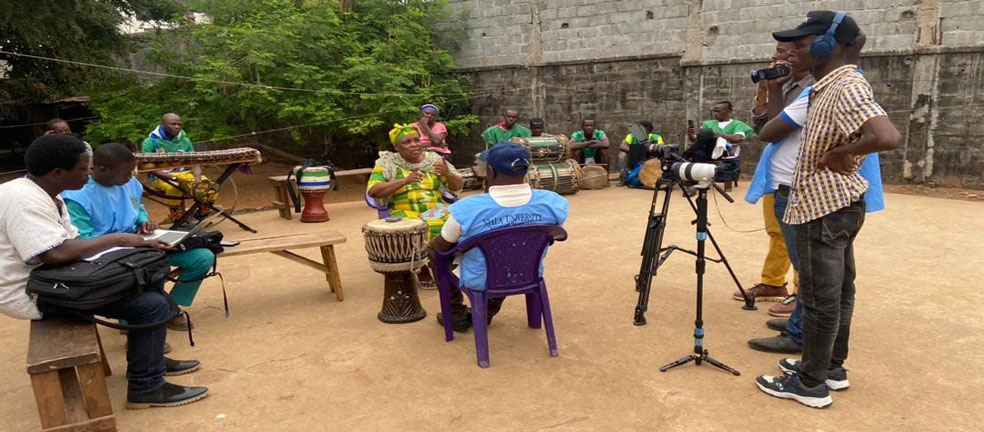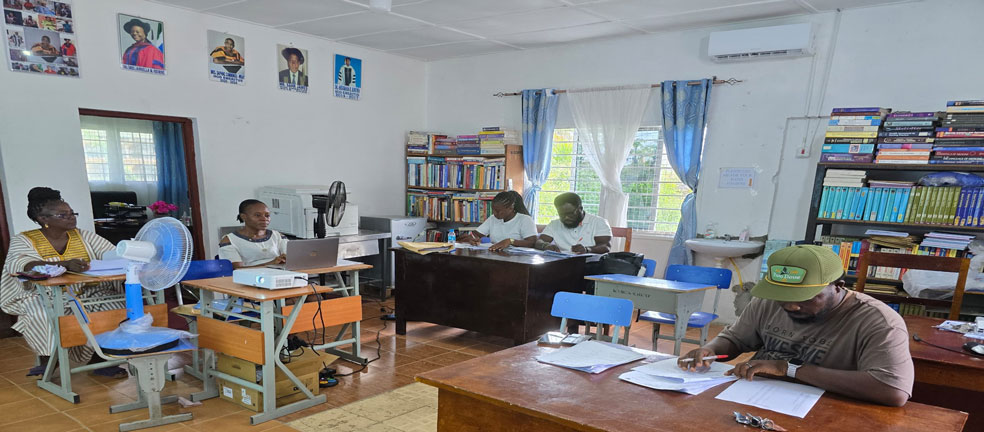Renowned Businessman Lectures Njala University Students
By: Alhaji Umaru Gbow
Credit: Public Relations Unit, Njala University
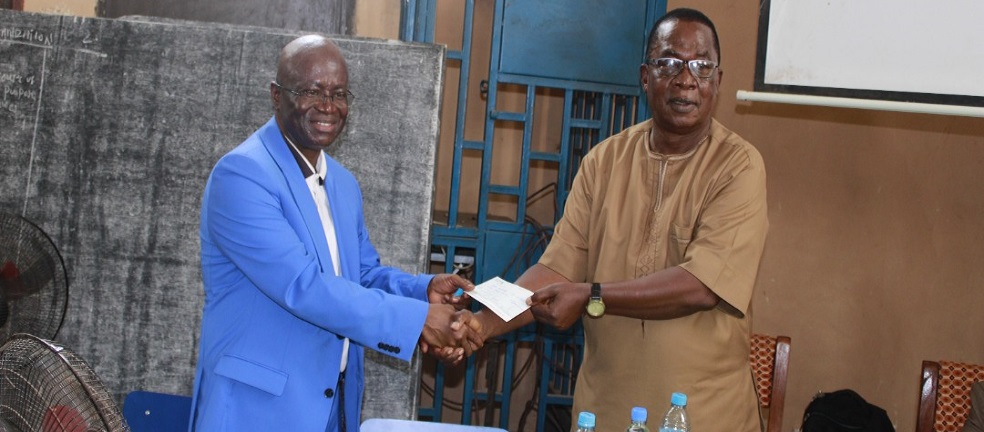
The Chief Executive and Founder of Sam King-Services, Sam King, was on the 18th August 2021 hosted by Njala University to deliver a lecture on the topic ‘’Entrepreneurial Perspective to Modern Education Featuring Njala University” at the University Auditorium.
The guest lecture is the third series organized courtesy of the Strategic Partnership for Higher Education, Innovation and Reform (SPHEIR) under the Assuring Quality in Higher Education Project, Sierra Leone (AQHED-SL) in collaboration with the Agri-Business Management Department in the School of Agriculture and Food Sciences.
Acting Vice-Chancellor and Principal, Professor Andrew Baimba intimated the students that he was at the session to add value to what the SPHEIR/AQHED and the Department of Agri-Business at the School of Agriculture and Food Sciences were doing to empower students.
He disclosed that University education is not only about the conventional form of teaching and learning but also about listening to the experiences of experts and professionals in various fields and encouraged them to pay attention to the Entrepreneurial journeying of the Guest Speaker, Sam-King, and learn from his experiences.
Sam-King started his lecture by likening his entrepreneurial journey to Njala University an institution which according to him had contributed immensely over the decades in the areas of research in rice farming, agronomy, animal husbandry, poultry farming, agricultural economics management, and engineering attracting the best of brains in the sub-region.
The CEO and founder of Sam-King Services continued that Njala University was a hub for agricultural research and science and noted that the West African Institute for Oil Palm (WAIFOR) was hosted at Njala University and the knowledge gained from the research was exported overseas to Malaysia and other Indo-Pacific regions.
He further told the staff and students that Njala University was the global leader in conducting research into how palm oil can be grown on an industrial scale but that it took the entrepreneurship minds of the Malaysian Government to operationalize the production of palm oil on an industrial scale. That, according to him is now raising an average net of US$ 16 billion per annum for the Malaysian economy.
The Guest Speaker cited Dr. Amadu Maturi, Professor Aiah Gbakima, Dr. Monty Jones, Joseph LoiusBoboh, Professor Nathaniel Kuyembah, Dr. Rashid Noah for immensely contributing to the development of sectors such as animal husbandry, onchocerciasis, New rice for Africa (NERICA) rice, botany, and engineering putting Njala University at the center of research, science, and engineering.
The entrepreneur noted that amidst that enviable history and academic prowess in the last four decades, Njala University is currently challenged in terms of sustaining those gains and this is as a result of a combination of factors ranging from bad political governance, economic, technological, institutional degradation, the civil war, brain drain, corruption, and other complex variables.
He recommended a curriculum review to integrate creative problem-solving effective communication skills, project management, people management skills, leadership skills amongst several others.
Mr. Sam King concluded by emphasizing that rejuvenating Njala University would require the preparation of a compelling Business Plan, strengthening a strong sense of integrity to regain public trust, engaging in transformational research and partnerships, and establishing a Strategic Planning and Development Steering Committee.
Sam–King was accompanied by Amara Sowa, Coordinator for President Bio’s Education Flagship Project, and Morlai Buya Kamara a Project Management Expert.
The Free Quality Education Coordinator lauded him and Njala University for integrating Entrepreneurship into the curriculum of Higher Education and reported that Free Quality Education has increased access to Basic Education since 2018.
That, according to him, would correspondingly increase access to higher education numbers and graduates in the next coming years who will be challenged with securing jobs and hence the trajectory to move towards entrepreneurship is the way to go.
The session ended with a question and answer session in which students asked for clarifications and also made meaningful contributions.
- Log in to post comments



